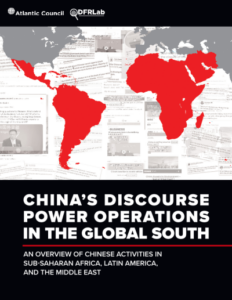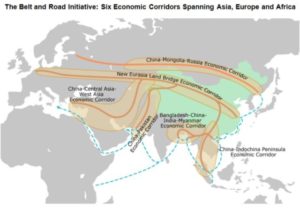A Communist Party congress that is poised to anoint Xi Jinping as China’s top leader for another five years will open in Beijing on Oct. 16, officials announced on Tuesday. Party officials are depicting Xi as the visionary leader that China needs to secure its rise, in an increasingly perilous world, well into the future, The New York Times’ Chris Buckley writes.
“Xi has spent his current term laying the groundwork for a major win at the 20th Party Congress,” Christopher K. Johnson, a senior fellow at the Asia Society’s Center for China Analysis, wrote in a recent assessment. “Xi’s third-term gambit leaves him in a much stronger position to dictate outcomes than his two immediate predecessors.”
 Party ideologues foresee a prolonged geo-political conflict not only between Beijing and Washington, but between competing ideologies and “social systems.’
Party ideologues foresee a prolonged geo-political conflict not only between Beijing and Washington, but between competing ideologies and “social systems.’
“Western countries led by the United States don’t want to see the emergence of a powerful China,” Qu Qingshan, a senior ideology official for the party, wrote in an essay about Xi’s role in China’s future. “The struggle between the two social systems and two ideologies will be long-lasting, complicated, arduous and severe.”
China’s ruling Communist Party sees its global influence operations as a form of political warfare, says Hudson Institute fellow John Lee, a former national security adviser to the Australian government. He talks to the FT’s global China editor James Kynge (above) about how China seeks to influence elites and create division in society in order to further its foreign policy goals.
China’s objectives in North Macedonia are strategic and economic as well as ideological, notes CEPA analyst Ana Krstinovska. They are mutually reinforcing and in service to China’s ultimate goal — becoming a global power able to use its worldwide dominance to advance its own economy and society, thereby providing legitimacy for the continued rule of the Chinese Communist Party, she writes.
 Xi hoped to expand China’s sharp power, create new markets for his country and establish his legacy with the New Silk Road project. But with debts mounting and countries like Sri Lanka threatening to default, has he bitten off more than he can chew? Der Spiegel asks:
Xi hoped to expand China’s sharp power, create new markets for his country and establish his legacy with the New Silk Road project. But with debts mounting and countries like Sri Lanka threatening to default, has he bitten off more than he can chew? Der Spiegel asks:
The fact that China is now recalibrating its initiative does not, however, answer the question of what will happen to the billions that are already on the brink of default. What if other recipient countries like Laos, Pakistan, Argentina or Egypt also slip into insolvency? These countries first suffered from the pandemic, and now they’re being hit by the price shock for oil and food caused by the war in Ukraine.
“The struggle between the two social systems and two ideologies will be long-lasting, complicated, arduous and severe,” #CCPChina ideologue Qu Qingshan wrote in an essay about Xi’s role, @nytimes‘ #ChrisBuckley writes. https://t.co/xlhxSeLUqo
— Democracy Digest (@demdigest) August 30, 2022
 On the International Day of the Disappeared,* civil society groups – including partners of the National Endowment for Democracy (NED) – called on the international community to recognize and respond to the widespread use of enforced disappearances in China, the International Commission of Jurists reports:
On the International Day of the Disappeared,* civil society groups – including partners of the National Endowment for Democracy (NED) – called on the international community to recognize and respond to the widespread use of enforced disappearances in China, the International Commission of Jurists reports:
Just over five years ago, on 13 August 2017, human rights lawyer Gao Zhisheng – praised as the ‘Conscience of China’ [and the subject of the documentary, Transcending Fear – see below]- vanished for the third time. …Gao Zhisheng’s case is severe, and yet represents only the tip of the iceberg: many other activists and lawyers face a similar fate, such as Tang Jitian, disappeared in 2021, tortured, and detained in a secret location. UN experts, including the Working Group on enforced disappearance, have sounded the alarm from as early as 2011 about the use of enforced disappearances against those taking part in China’s human rights movement.
Xi’s concentration of personal power has reintroduced the risk of succession battles and amplifies the effects of his ideology and decisions, which are felt not only within the PRC but around the world, Yuen Yuen Ang writes in How resilient is the CCP? in the latest issue of the National Endowment for Democracy’s Journal of Democracy. By undercutting China’s political norms to cement his own power and brand of rule, Xi may also have created new vulnerabilities for the regime.
*On the occasion of August 30, International Day for the Victims of Enforced Disappearances, the Euro-Mediterranean Federation against Enforced Disappearances (FEMED) has produced a mobilization kit (in French, English and Spanish) containing various tools and materials to take part in this day in honor of the victims of enforced disappearances in the world. the kit includes ideas for initiatives and proposals for events to dedicate to this international day which is crucial for the establishment of Truth and Justice for the disappeared and their relatives.







